Upload the app with the IEAP to the IEM¶
After the successful testing of your first Industrial Edge app on your development environment, the docker-compose.yml file must be adapted for the Industrial Edge. Another docker-compose Edge.yml file that is tailored for the Industrial Edge can be found in the folder "my edge app."
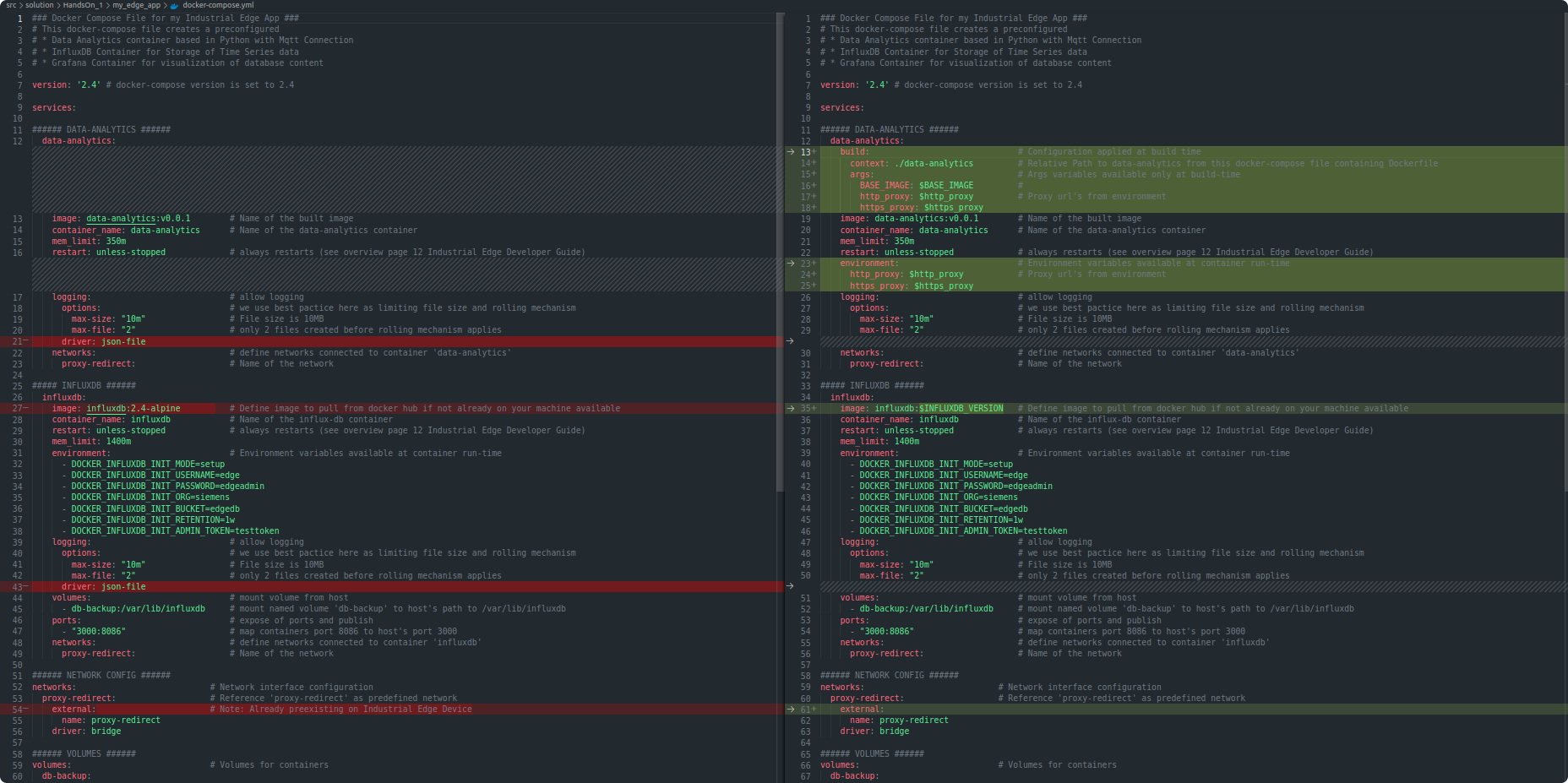
The most important changes are:
-
Build steps are completely removed as IEAP will take the created images from the docker-compose file.
-
All environment variables, which are set by the .env file, are hardcoded,
-
The environment variables are also removed as there is no need for a proxy server in your first app.
-
For logging purposes the default driver 'json-file' is added.
NOTICE
The images of your first app have all been built.
Create your project on IEM¶
Create a project for your first Industrial Edge app on the IEM. Navigate to 'App Projects'. You can create a new project by clicking on 'Create Project' in the upper right corner of the page as shown in the figure Create dialog of a new project on IEM. Fill out the Project form and click on 'Create'.
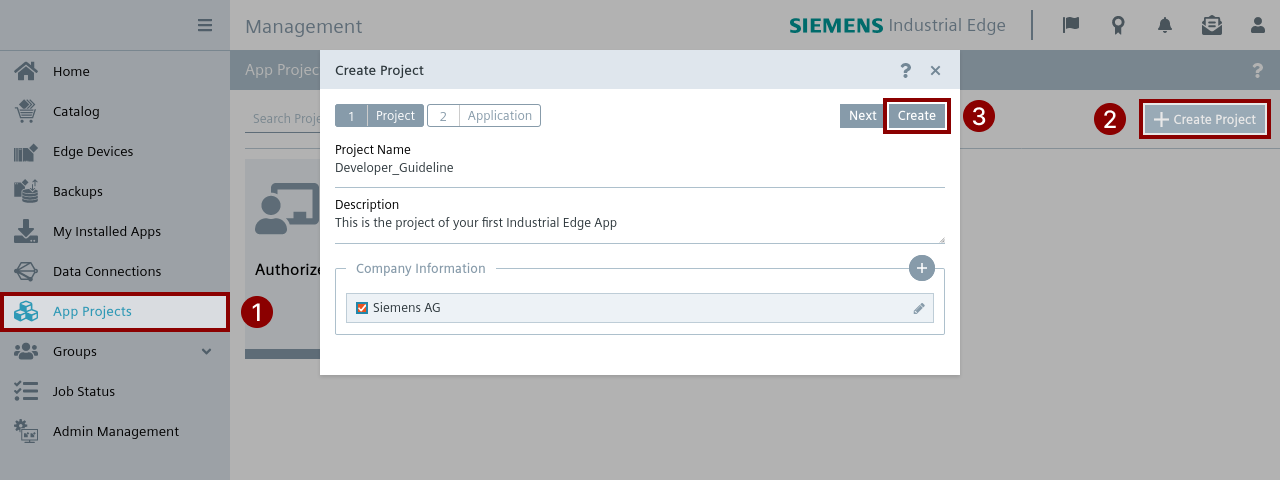
You have now created a new project.
Afterwards you can click on 'Create' to initiate the app creation process inside your new project. A new form is opened. Please fill out all fields which are marked in the picture below.
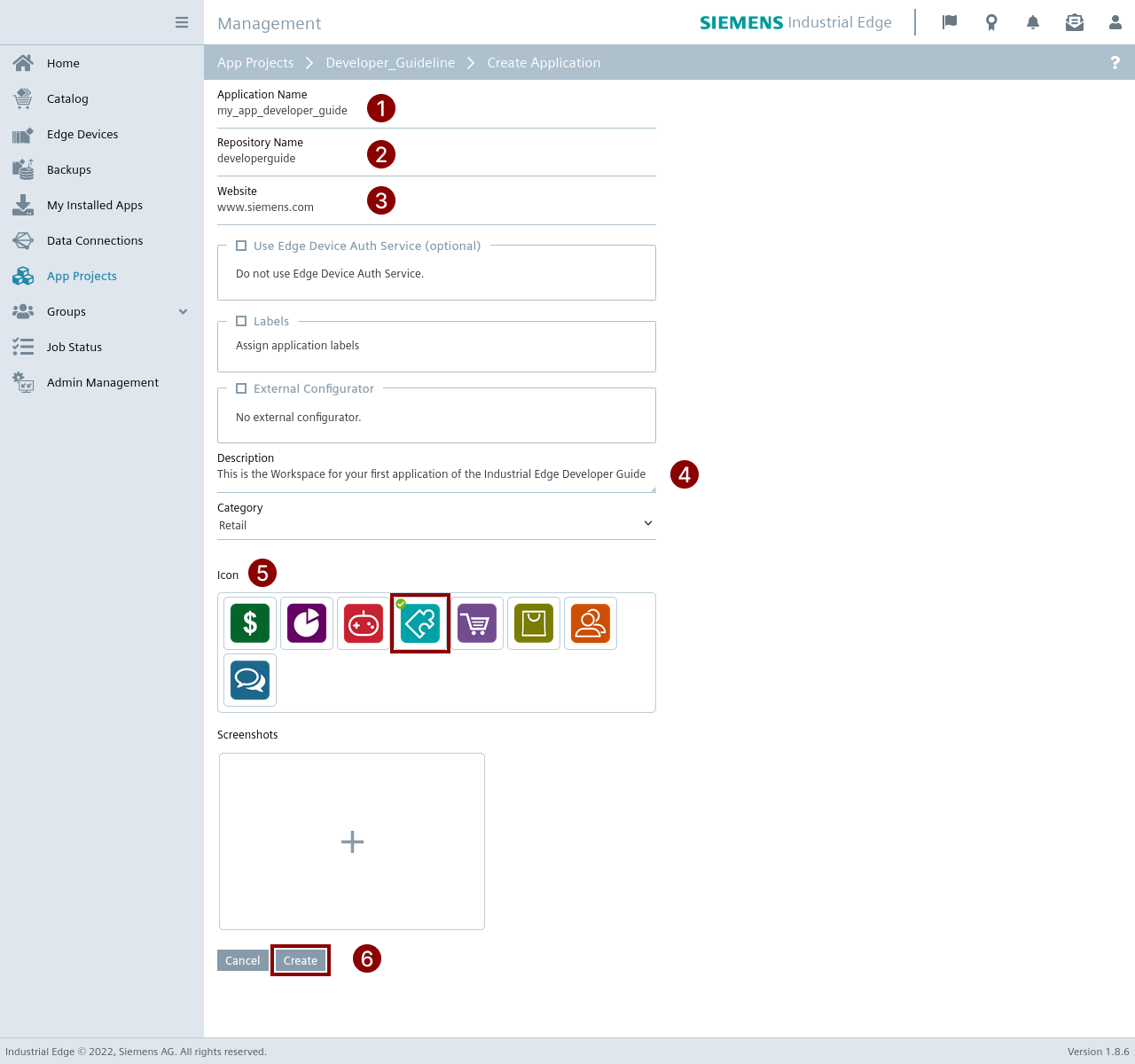
Click on 'Create' to create an empty Industrial Edge app on your project workspace. In the IEM you will see the app you are currently creating app with your icon.

Create your app in IEAP¶
Open the IEAP app in your development environment. If you are not connected to your IEM, please 'Go online' again and log in to the IEM in the IEAP app. You should see your app there. If not, please click the icon to refresh.
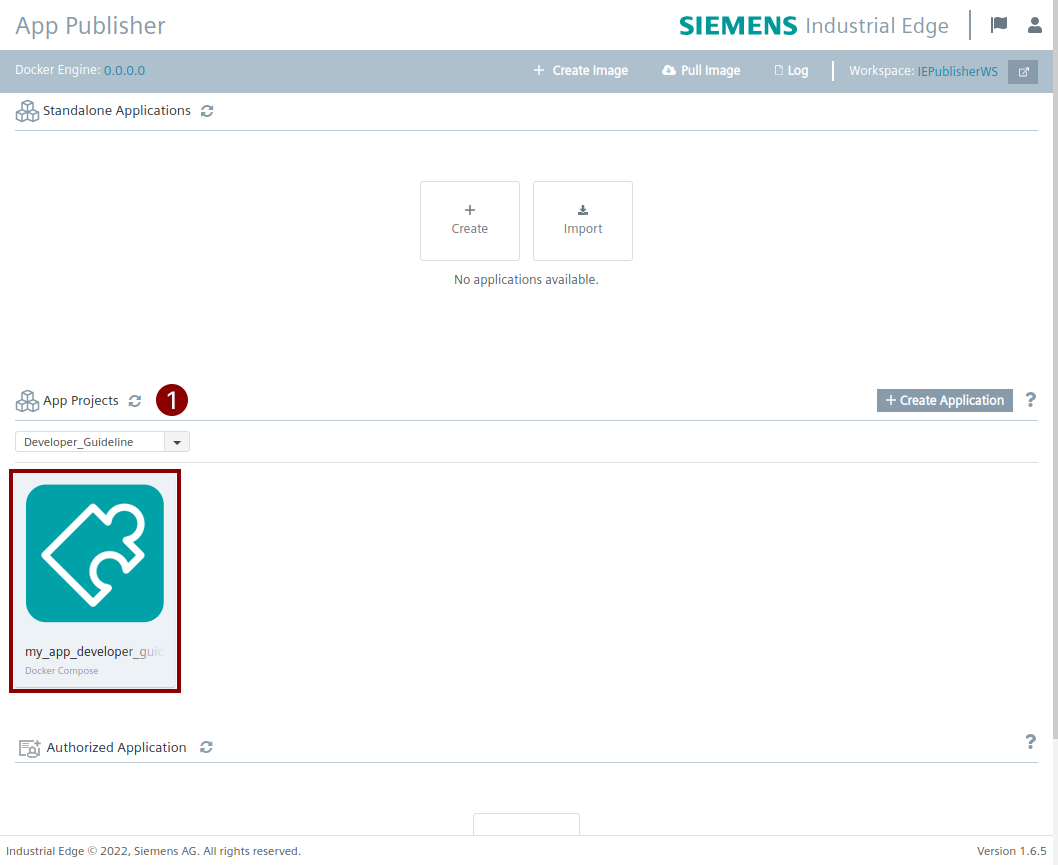
Add your Docker-Compose file to IEAP¶
Click on the app and click on 'Add New Version'. A new dialog opens to select your docker-compose version. As docker-compose version 2.4 is used in the file, you must select '2.4'.

Now you have two options to create a docker-compose file for the Industrial Edge of your app:
- Graphically, supported by dialogs to create a corresponding docker-compose.yml file
- Import an existing one and adapt it afterwards
As your 'my_edge_app' folder already contains a docker-compose_Edge.yml file, you click on 'Import YAML'.

Select the docker-compose_Edge.yml file from the file system.

Click on 'Review' and then 'Validate & Create'.
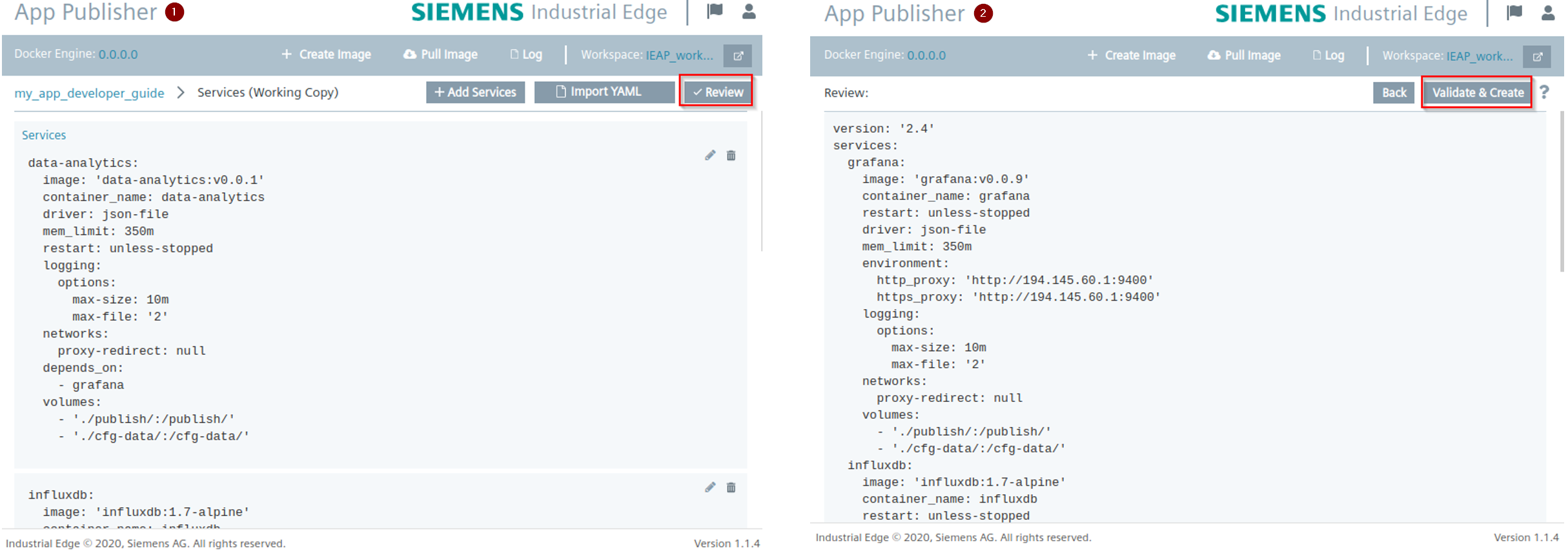
Upload your app to IEM¶
If everything in the docker-compose file is correct and the built images are present, your first version of the Industrial Edge app is ready. Now let's create a new version of the app using the Semantic Versioning schema.
Use Semantic App Versioning¶
After clicking 'Validate & Create', a window with 'Add version' appears.
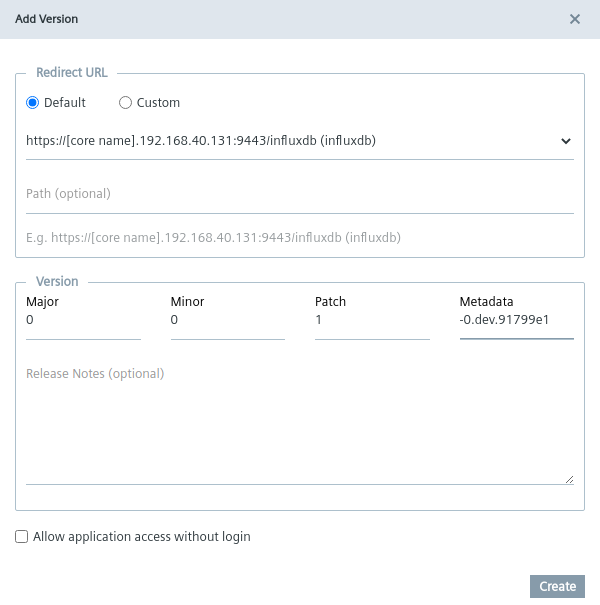
Now open a browser window and go to the git repository where you stored your code, and check the newest commit history. You will find the 7 characters of the commit version, shown as follows:

Copy that and edit in the window in IEAP with '-0.dev.' initially and click on 'Create'.
NOTICE
All apps on the Marketplace are required to follow the Semantic Versioning in format x.x.x. Metadata is optional. You can find more details about the standard here.
If the app is running properly and can be considered as a suitable candidate for release, you can publish exactly this app again with a different versioning number, shown as follows:
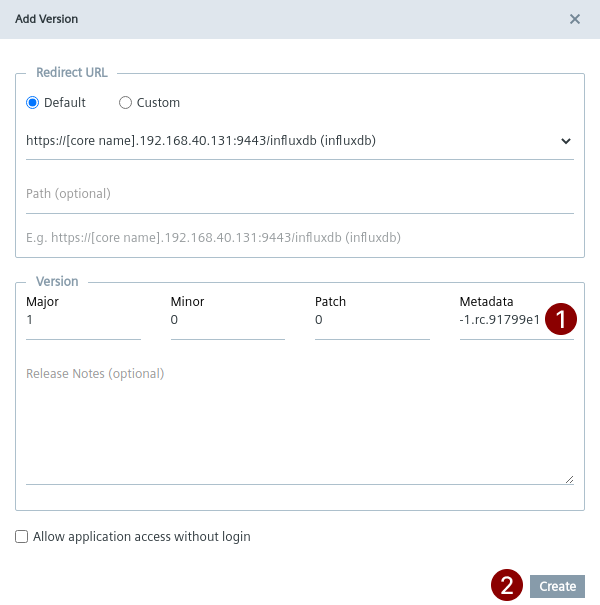
And eventually in the release stage (difference in metadata):
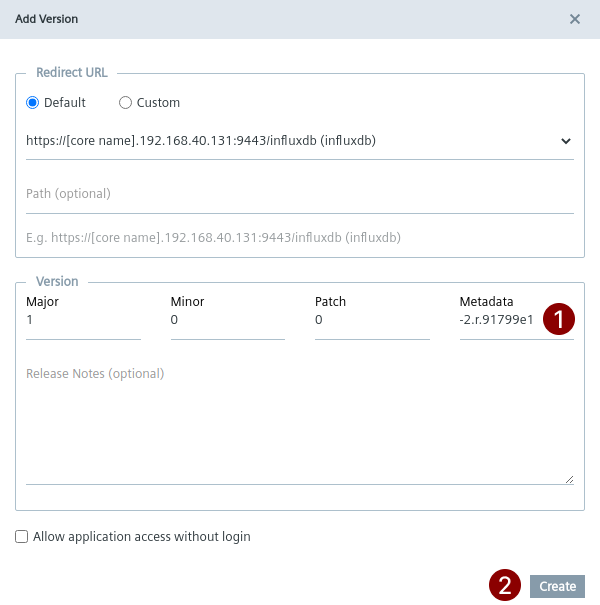
The result should look like the figure below.

You can click on 'Start Upload' to transfer your version of your app to the IEM. This might take a while. The status can be monitored by clicking on the flag icon next to your account in the upper right corner.
Semantic App Versioning IEM
Under IEM UI → App Projects → Developer_Guide &rarr -> my_app_developer_guide, it may look that this:
